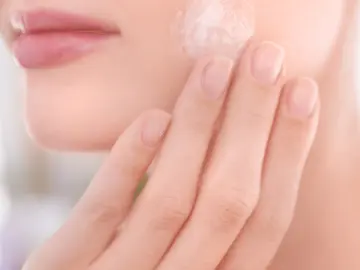When it comes to skin care, the amount of information and advice available online is incredible. There’s so much to choose from, and that’s before you even consider the tips passed on to you from your friends and your favourite magazines.
All of this information can be confusing, and to make it even worse a lot of the time you’ll find pieces that totally contradict what you’ve heard elsewhere. How are you supposed to separate the good from the bad?
At Save Face we pride ourselves on providing you, the consumer, with up-to-date information on all things skincare related, and it occurred to us that a ‘Did You Know?’ piece would be particularly useful to anyone who has trouble recognising beauty fact from fiction. So, in contribution to the cause for better skincare for all, here are a few common skincare misconceptions that we’re putting straight. We hope you and your skin enjoy the benefits!
Cleansing Wipes
Whilst they’re hugely popular and extremely convenient, the humble face wipe can be extremely bad for the skin.
Experts share concerns that far from effectively cleansing the s kin, wipes simply smear makeup, bacteria and dirt across it, causing numerous problems.
The very act of rubbing your skin with these wipes (especially the delicate skin around the eye area) can cause wrinkles and premature ageing, while the preservatives contained in the wipes can irritate the skin causing dryness, sensitivity, allergies and exacerbate conditions such as eczema and acne.
Soap and Water
While the generations that have come before us will swear that soap and water are sufficient to keep skin looking its best, thankfully by now we know a lot better.
The chemical composition of soap allows it to break down oil and dirt, suspending it in water so that it can be rinsed off. It won’t differentiate between the natural oils that your skin produces to keep itself healthy and the dirt that has built up on your face, and will strip away everything leaving the skin extremely dry. Also, the acidity of soap is very different from the natural pH of the skin and can cause sensitivity and irritation beyond the dry, tight feeling we expect.
In addition to this, in areas of hard water the water itself can be damaging to the skin. Hard water is alkaline, and contains high levels of minerals like iron, magnesium and calcium. When these minerals are contained in the water they leave little space for other chemicals (such as soap) to dissolve, so a thin layer is left on the surface of the skin after washing. This layer, along with the minerals in hard water, can clog pores and irritate the skin, causing issues such as dermatitis.
Flannels
All flannels, even those made from quality muslin, will harbour a build-up of dead skin cells and makeup which bacteria thrive on. Using them will introduce bacteria to your face unless you thoroughly wash and dry flannels between every use – so if you’re not willing to do that, they should be avoided at all costs.
Facial Scrubs
Harsh exfoliating facial scrubs are actually quite traumatic for the skin, and can lead to over-drying, broken capillaries and millia (small, hard white heads). Instead of using these abrasive cleansers, look for chemical exfoliators such as fruit and mild glycolic acids. However, it’s important to remember that these won’t suit everyone and overuse can lead to sun sensitivity, pairing this type of cleanser with a high SPF sun screen is vital.
Different Types of Dryness
Did you know that skin can be oil dry or water dry, and that the two are very different things? Oil dryness is unsurprisingly related to a lack of oil production in the skin, which can lead to chronic dryness. This is a problem that tends to get worse with age. A thin layer of oil is necessary to protect the skin and keep it hydrated, as it helps skin to retain moisture. Skin without this layer can feel tight and appear dull with signs of premature ageing, and should be treated with a particular type of moisturiser. Water dry skin is simply dehydrated, and again unsurprisingly this pertains to the actual water content of the skin. Well hydrated skin will appear smooth and dewy with a plump, supple, elastic epidermis, while dehydrated skin will wrinkle easily and become flaky. Dehydrated skin tends to be caused by external issues or lifestyle choices, things like seasonal changes and artificial indoor environments, as well as smoking, alcohol and caffeine intake. If you do have dry skin, it’s important to treat the correct type of dryness from which you’re suffering, so see an expert before you start slathering on the moisturiser.
The Time Factor
Time and skincare go hand in hand, and not just in the way you would expect! Time is a factor in a lot of different elements of skincare – did you know that skin takes approximately 6 – 12 weeks to regenerate, so patience when trying a new product is essential? However, patience is not a great idea when it comes to saving expensive products for a special occasion – active ingredients degrade over time and should be used up within 8 – 12 weeks of purchase. Vitamin C degrades particularly quickly when exposed to light, heat and air, so if you want your products to last, look for those dispensed with a pump.Time is also a factor when it comes to old products, so spring cleaning is essential when it comes to cosmetics. Did you know that old makeup can harbour any number of harmful bacteria? The longer you use a product, the more bacteria you’re introducing to it, and these bacteria can cause painful skin and eye infections. Most makeup should never be kept for over a year (check out this handy infographic for a more detailed guide) so to avoid aggravation, put a ‘date of purchase’ sticker on new products and throw them out once they’ve passed their best.In addition to this, remember that your skin care regime is a little like your exercise one. Your body will get used to something it does all the time, so consider changing it every six months to give some different active ingredients the chance to get to work on your skin.
The Personal Touch
While sourcing products and procedures online may seem cheap and easy, building a lasting relationship with a qualified skincare professional is always worth the extra money. Not only will their expert advice help you to invest in products that will deliver the best results for your particular skin (saving you wasting money on the wrong type of products and procedures) they will be able to regularly review your skincare regime and make sure that it keeps delivering in the way that it should.
Save Face
Here at Save Face we cannot emphasise enough the importance of finding a properly qualified, experienced skin care professional if you’re thinking of adding a little something extra to your skincare regime. As the non-surgical cosmetic industry is currently unregulated, there are thousands of untrained individuals out there who could do significant damage to your health – if you let them. Don’t fall foul of cosmetic cowboys – use the Save Face search engine to get in touch with a practitioner you can trust, and make sure your face stays in safe hands.


